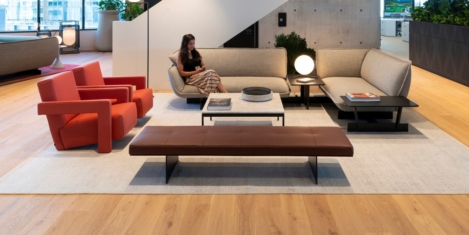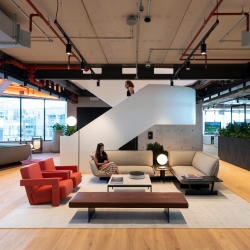To provide the best experiences, we use technologies like cookies to store and/or access device information. Consenting to these technologies will allow us to process data such as browsing behaviour or unique IDs on this site. Not consenting or withdrawing consent, may adversely affect certain features and functions.
The technical storage or access is strictly necessary for the legitimate purpose of enabling the use of a specific service explicitly requested by the subscriber or user, or for the sole purpose of carrying out the transmission of a communication over an electronic communications network.
The technical storage or access is necessary for the legitimate purpose of storing preferences that are not requested by the subscriber or user.
The technical storage or access that is used exclusively for statistical purposes.
The technical storage or access that is used exclusively for anonymous statistical purposes. Without a subpoena, voluntary compliance on the part of your Internet Service Provider, or additional records from a third party, information stored or retrieved for this purpose alone cannot usually be used to identify you.
The technical storage or access is required to create user profiles to send advertising, or to track the user on a website or across several websites for similar marketing purposes.







 A new survey has suggested that people’s reluctance to head back into the office has much less to do with the risks of COVID-19 or other germs and more to do with the dress code of the company they work for. According to the poll from
A new survey has suggested that people’s reluctance to head back into the office has much less to do with the risks of COVID-19 or other germs and more to do with the dress code of the company they work for. According to the poll from 
 New research by
New research by 
 As 2020 came to a close, there was a palpable sense of hope that 2021 would bring with it a fresh slate with the horrors of COVID behind us. Alas, that has not happened and it seems we have more of the same, certainly for the next few months and with that the speculation about the ‘future of the office’ will no doubt continue.
As 2020 came to a close, there was a palpable sense of hope that 2021 would bring with it a fresh slate with the horrors of COVID behind us. Alas, that has not happened and it seems we have more of the same, certainly for the next few months and with that the speculation about the ‘future of the office’ will no doubt continue. 
 Is the workplace industry stuck in the past, in a 20th century model of how and where work is done? The separation of work and the rest of life during the Industrial Age has shaped the structures of modern life: the houses we live in, the offices, factories and shops we work in, and the transport networks that shuffle us from one location to another for different activities. It has also shaped the planning system, the institutional and financial structures of how places are designed and built, and perhaps most of all the mindsets of just about everyone involved in creating places to work and live.
Is the workplace industry stuck in the past, in a 20th century model of how and where work is done? The separation of work and the rest of life during the Industrial Age has shaped the structures of modern life: the houses we live in, the offices, factories and shops we work in, and the transport networks that shuffle us from one location to another for different activities. It has also shaped the planning system, the institutional and financial structures of how places are designed and built, and perhaps most of all the mindsets of just about everyone involved in creating places to work and live. 
 More than a third (37 percent) of US and UK office workers describe the prospect of going back to the office as the equivalent of going out to meet with friends, according to a new study by
More than a third (37 percent) of US and UK office workers describe the prospect of going back to the office as the equivalent of going out to meet with friends, according to a new study by 
 Increasing pressure from investors, customers and employees are causing CEOs to focus their businesses on purpose, resilience and long-term sustainability, according to a new report from the Reward & Employee Benefits Association (
Increasing pressure from investors, customers and employees are causing CEOs to focus their businesses on purpose, resilience and long-term sustainability, according to a new report from the Reward & Employee Benefits Association (


 Businesses are managing a new work dynamic that’s made up of three parts, or three ‘types’ of employee. Some are keen to go back to the office, some want to stay working from home, and some want an entirely flexible arrangement so they can fit work around important personal commitments.
Businesses are managing a new work dynamic that’s made up of three parts, or three ‘types’ of employee. Some are keen to go back to the office, some want to stay working from home, and some want an entirely flexible arrangement so they can fit work around important personal commitments. 
 While working from home has surged in recent months, the use of flexible working hours – such as part-time, flexi-time and compressed hours – has fallen over the course of the Coronavirus pandemic, according to new
While working from home has surged in recent months, the use of flexible working hours – such as part-time, flexi-time and compressed hours – has fallen over the course of the Coronavirus pandemic, according to new 









May 13, 2021
The pivotal role of remote working in the journey to jab the nation
by Michael Whitmore • Comment, Flexible working